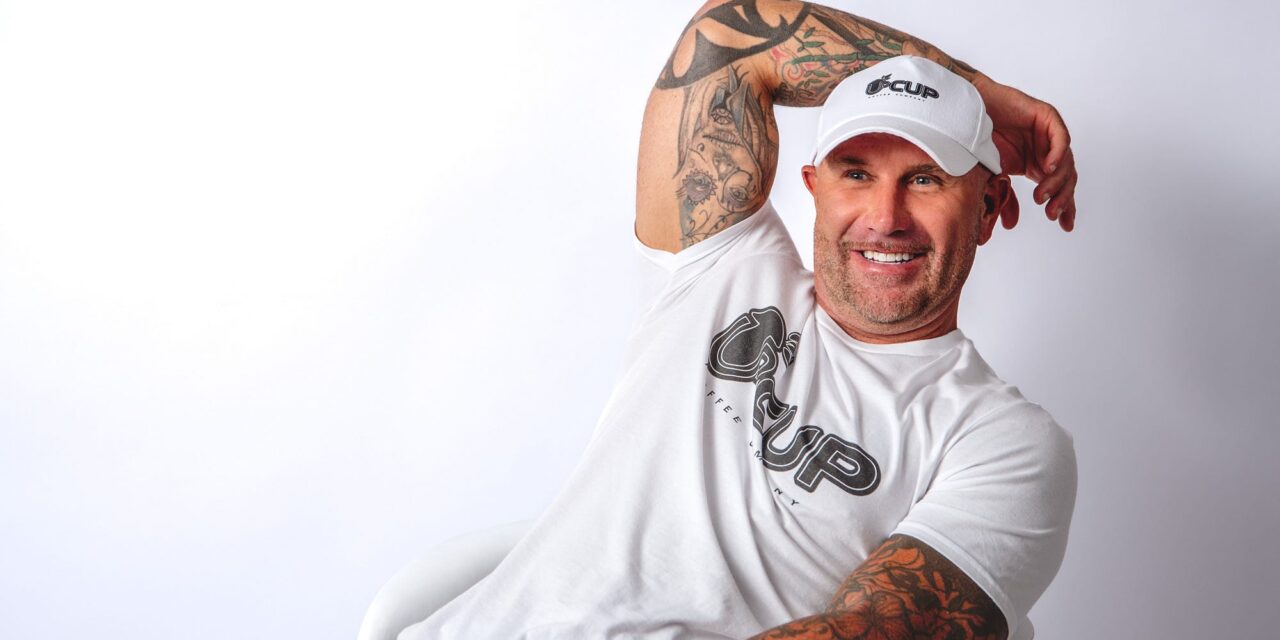Sept. 23, 2024-
The life of crime-thriller author GC Brown is all about making a series of devastating wrong choices, survival, and redemption.
How did GC, born Gregory Claude Brown, evolve from a flawed person to an exemplary writer?
He provides brutally honest answers and advice. He admits his failures that led to his 16-year prison sentence that included solitary confinement. That’s where he learned to successfully deal with his life’s failures and became a successful crime-thriller author.
After high school graduation in 1991, he held countless jobs which included being a general manager in manufactured housing, selling real estate and managing night clubs.
Then, the unthinkable: GC Brown was charged with tax evasion, failure to file timely tax returns and wire fraud.
Pardon the pun, Mr. Brown is an open book and provides honest, compelling answers to questions about his emergence from prison to his career in writing mystery thrillers:
Q: Where and what was your upbringing like?
A: I grew up on a small farm in Northwest Indiana. Lots of cornfields, lots of farms, lots of winding backroads, all leading to one grocery story, one stoplight and one five-hundred-person high school.
You grow up with the same families, for generations. You’ve heard the phrase: You can’t escape Small Town. Well, most don’t even want to. I didn’t want to. I wasn’t given a choice. Family packed up a Uhaul and moved to Arizona for my junior year. The high school had like 3,500 students.
There was even a guy there with my same name. The other Gregory Brown was a Senior, and as if that wasn’t enough, the guy was like six-three, modeled on the weekend and was the star athlete for the entire state. I was five-ten, scrawny, the ocassional pimple, with unruly hair and freckles.
I could hit a baseball from one city to the next, so I did have that. Anyway, all that fun lasted one year. My family moved again. Brand new high school. Brand new friends. Brand new bullshit. A year later, the very day I graduated, I caught a rocketship back to Small Town, USA.
Q: Why and how did you become interested in various industries — what motivated your entrepreneurial bent in your myriad of ventures early in your career?
A: There are a couple of different answers. I’m going to cover the “why” part first. The skinny of it is, I don’t know why I did most things I did. That’s the best answer I can give you. I look back and think maybe I was a little crazy.
The “how,” I always had all of these big ideas—some of them not so bright—and somehow they always just managed to lead somewhere else. I was fortunate, most would say. And I probably was, although at the time I didn’t understand, or appreciate it.
Q: What advice would you give budding entrepreneurs?
A: Spending 16+ years in prison I’ve been fortunate to meet all kinds of characters. Along the way, I’ve heard every kind of heartache, I’ve seen every kind of pain. I’ve heard every excuse in the book, for everything you can think of. However, I’ve also lived amongst some of the best people you can imagine. In otherwords, I’ve been around the block, so to speak.
My answer to your question, and by the way this it never fails, is this:
- When you see a man’s character, don’t question it. That’s who he is. Either accept it or move on. In business there are just as many characters as there are in prison.
- You need to say this to yourself until it plays on it’s own: “When I stop working hard, and stop creating, I stop growing and I’m content where I’ve landed.”
Q: Only you know what your goals are. What was behind your being charged with tax and wire fraud?
A: Well, it was more like a “who?” And the answer is Uncle Sam. I forgot to pay the guy. The Government will tell you I did it on purpose. I will say this, I was a young guy making too much money, in a city where there were too many things to do.
“When I stop working hard, and stop creating, I stop growing and I’m content where I’ve landed.”
-Author GC Brown
Q: You refused a plea bargain? Were you innocent or guilty? What would you recommend for similar defendants?
A: Let me answer this one in a roundabout way. The Government has a 97% conviction rate. That means they are rarely wrong. The United States leads the world in several categories, not all of them good. One of those categories is “People Behind Bars.” Millions and millions over the years.
Do you think they’re right 97% of the time?
They’ve won two World Wars, print their own money, and there are zero checks and balances. I’ve faced them. I know what they can do. I’ll fight anyone but them. Tell everyone you know to take a plea.
Q: What was it like serving 16 years?
A: You likely will not hear this response too often: Prison was the best thing to ever happen to me. I may have not been doing most things the government claimed, but I was no angel either. I’ve done plenty things in my life that warranted prison.
One day I got to thinking about those things. I realized that through all my chaos, I somehow always got to the top of whatever I was doing. Through pure tenacity, I just made things happen. I always managed to win.
Not everyone I dealt with could say the same. The stark realization of that hit me one night about 8 years ago. The next realization: I was the one screwing up my own life.
Literally, the next day I set out to be the best human being I could be. I mean literally too. That night, I rolled over in my bunk and wrote myself a very similar paragraph as the one above. In a note off to the side, I wrote exactly this: Be the best human you can be! Today, because of that, I am living my best life.
Q: Please tell us about your writing journey. To what do you attribute developing a passion for writing? Did you begin writing in prison?
A: Yes, I began writing in prison. Not because I wanted to, I just didn’t have another choice. The boredom was excruciating. Literally, nothing to do. I went to see my case manager, to see what I was allowed to do to make money. The guy told me the only thing you really can do is write books.”
He kind of laughed, when he said it. Made me kind of mad. Not enough to grab a pen though. It took two more times. A few months after speaking with my case manager, I was involved in an “altercation.” I won. However, I ended up in solitary confinement for more than a year. I was fighting my case and had a legal call. My appellate attorney asked what I did all day in the hole? I told him, “I read.” He suggested I write a book.
It was the second time this book thing had come up. Still no pen. Time passed. I read anything I could get my hands on. I ended up with a USA Today Newspaper. On the front page an article on the top 10 hardest things to accomplish in a lifetime. Lo and behold, you guessed it, completing a novel was on the list.
That’s three. Let’s write a book. I have and I have fallen in love with writing.
Q: How do you explain your redemption and perseverance?
A: Grit. I now understand why they say a “A tiger never changes his stripes.” Rewiring myself to be someone totally different was the hardest thing I have ever done. And I’ve done some pretty hard things in my life. It took all of me, but the reward has been immeasurable.
Q: Please tell us about your series: “SNIFF, SMOKE, SHOOT.”
A: SNIFF part one of SNIFF, SMOKE, SHOOT is out on Nov 1. I pulled this from the website:
SNIFF by GC Brown is a riveting crime thriller that plunges readers into the gritty underworld of high-stakes bank heists, international intrigue, and relentless pursuit. The protagonist, Bank Robbin’ Dave, is a former high-flying financier turned desperate criminal, driven by a need to fund his wife’s cancer treatment. Brown crafts a complex character whose moral ambiguity and raw determination make him both compelling and relatable.
To learn more about him and to see his available writings: GCBrownbooks.com, amazon.com.
From the Coach’s Corner, here’s a potpourri of career tips:
Strategies and Decisions for Best Practices in Risk Management — To prevent a crisis from interfering with the continuity of your business, you must strategically plan to manage any potential risks.
Public Relations Expert Provides Crisis Management Tips — Appearances count. For timeless lessons in crisis communications, universities, presidential candidates and businesses have each demonstrated a lack of awareness about good public relations. A public relations expert explains what they should have done.
Secret to Success in an Uncertain Economy: Expand Marketing — Authoritative research has shown businesses are self-destructing when they cut back on marketing in downturns.
Ace Your Video Job Interview with These Important Tips — For virtual job interviews, you need additional skill sets to avoid several pitfalls. Here are video lessons I once learned as a TV news director.
Thank You Notes Are Vital After Job Interviews – 12 Best Tips — There’s a common thread among people who win jobs after they interview with decision-makers. Winning applicants promptly send well-written thank you notes. Here’s how …
Sometimes acknowledging your erroneous ways is the first step to redemption.
-Ravi Shastri
__________






